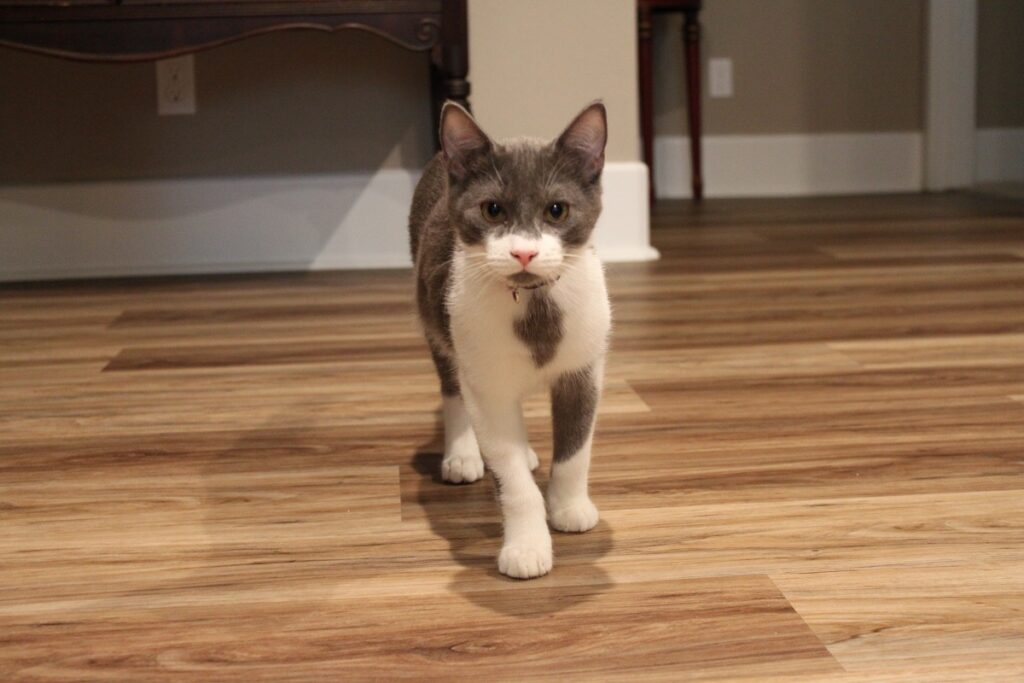Bringing home a kitten is a bit like hosting a very curious, very tiny roommate who has zero concept of boundaries. At first, they live in one room. Then they start poking around a little more. Before long, they are trying to launch themselves off bookshelves and chew every cord in sight.
Letting your kitten roam the house is a gradual process that depends on their age, confidence level, litter box reliability, and your home’s level of kitten-proofing. Open access is not just about freedom. It is about safety, supervision, and trust.
So when exactly is it time to open those doors and let your kitten explore like the bold little adventurer they are? Let’s walk through the stages of kitten development and how to decide when they are ready for house privileges.
The Importance of a Safe Starter Room
Before we get to the grand tour of the entire house, your kitten needs a solid foundation. Every new kitten should start life in a safe, quiet starter room. This small space should include everything they need: food, water, a litter box, toys, a scratching surface, and a cozy place to sleep.
Starting small offers big benefits:
- It helps your kitten get used to their new surroundings
- It gives them a sense of safety and security
- It reduces the chance of litter box accidents
- It lets them adjust to new smells, sounds, and routines without being overwhelmed
Once they seem comfortable in this space and are using the litter box consistently, it is time to start thinking about supervised exploration.
Around Eight to Ten Weeks: Time for Supervised Wandering
By the time your kitten is eight to ten weeks old, they are likely starting to explore on their own terms. At this stage, it is fine to let them explore new rooms under supervision. Keep the doors open for brief, structured play sessions so they can get used to the layout of your home without getting lost or overwhelmed.
During this phase:
- Keep a close eye on your kitten’s behavior and energy
- Gradually increase the space they can explore
- Watch for signs of nervousness or overstimulation
- Make sure they can easily find their way back to the litter box
If you see signs of hesitation or accidents outside the box, scale things back and go slower.
By Four to Five Months: More Freedom, Fewer Limits
Most kittens are ready for more unsupervised access around four to five months of age, depending on their maturity and behavior. At this point, they are more coordinated, more confident, and more likely to return to their litter box reliably.
Before you open the entire house, ask yourself:
- Is the house kitten-proofed from top to bottom?
- Are cords, plants, and fragile items out of reach?
- Is there more than one litter box available in case they get distracted?
- Do they know where their food, water, and safe zones are?
If the answer is yes to all of the above, you can start allowing them to roam for longer stretches, even when you are not in the room. That said, it is still a good idea to close off certain areas that may pose safety risks, like laundry rooms, garages, or staircases without railings.
What Can Go Wrong If You Allow Too Much Freedom Too Soon
As tempting as it is to give your kitten full house privileges early on, moving too fast can create problems. Kittens who are overwhelmed or unsure of where to find their essentials may develop bad habits, such as avoiding the litter box, hiding in hard-to-reach places, or chewing things they should not.
Other potential issues include:
- Getting stuck behind appliances or furniture
- Falling from heights while exploring shelves or stairs
- Chewing on cords or toxic plants
- Having accidents far from their designated litter box area
A gradual approach not only prevents these issues but also helps build confidence. Kittens who feel secure in their environment tend to become calmer, more curious, and better adjusted as adults.

Dear Diary, First day of #HouseRoaming, and wow, the big world is so much more than my cozy room! The giant fluffy couch monster? Not as scary as I thought. Found a strange watery bowl in the place they call ‘bathroom’. Almost fell in, but my lightning-fast reflexes saved the day. #CloseCall. Best of all, discovered a magical box filled with tiny round treasures. They call it a ‘treat jar’. I must investigate further. Adventure awaits! #MissionTreatJar #KittyExplorer
Joey
Tips to Help Your Kitten Adjust to New Spaces
When expanding your kitten’s access to the rest of the house, take a few extra steps to set them up for success.
- Keep the litter box easily accessible in every new space
- Provide cozy hiding spots in each room so they feel safe
- Move one or two familiar items, like a blanket or toy, into each area
- Introduce one room at a time instead of the whole house all at once
- Supervise new areas before leaving your kitten alone there
Think of it as orientation week. Your kitten is exploring a new campus, and your job is to help them learn where everything is without turning it into a full-blown scavenger hunt.
Final Thoughts: Let Curiosity Meet Confidence
The right time to let your kitten roam the house depends more on readiness than age. Some kittens are bold explorers right out of the gate. Others prefer to take their time. Your job is to give them a safe, encouraging environment and adjust the pace based on how they respond.
Start small, expand slowly, and always keep an eye on how your kitten handles each new space. Freedom is a big deal in the kitten world, but so is safety. With the right timing and a little patience, your kitten will be roaming happily, tail high and eyes wide, exploring their home like it is their very own kingdom.
Sources:
Kitten Care and Socialization Timeline https://www.petmd.com/cat/behavior/kitten-development-timeline
Introducing a Kitten to a New Home https://www.humanesociety.org/resources/bringing-kitten-home
How to Litter Train Your Kitten https://vcahospitals.com/know-your-pet/litter-box-training-for-kittens
Kitten-Proofing Your Home https://www.icatcare.org/advice/kitten-proofing-your-home
Recent Posts
Your Cat Might Be a Furry Little Healer… or at Least a Fuzzy Alarm System If you’ve ever had your cat suddenly become extra clingy when you’re under the weather, you’re not alone. From...
Cats are experts at hiding things, socks under furniture, their disdain for your playlist, and, unfortunately, symptoms of illness. In the wild, showing weakness could make them a target, so even...


